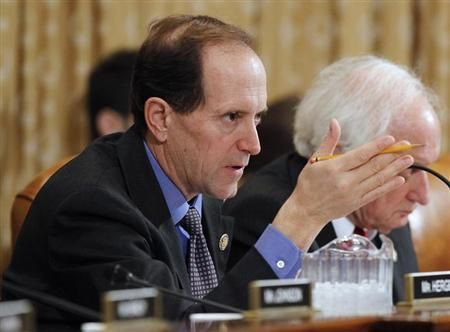Republicans, Again, Pressure Research Agency To Withdraw Report Contradicting GOP Tax Theory

Only months after attempting to force an independent research service to pull a report concluding tax cuts for the wealthy have a minimal impact on economic growth, congressional Republicans are once again up in arms against a government agency that contradicted GOP orthodoxy.
House Ways and Means Chairman David Camp, R-Mich., criticized the Congressional Budget Office for publishing a “heavily slanted and biased report” after the nonpartisan agency concluded that a territorial tax system -- under which companies could bring foreign profits home with little or no corporate income tax imposed on a permanent basis -- could ultimately end up pushing jobs overseas.
That analysis did not sit well with Republicans, particularly because the taxation of multinational corporations has become a prominent talking point as lawmakers consider reforming the federal tax system. President Barack Obama, in his recent State of the Union address, called for instituting a minimum tax on offshore income, a move the CBO reported could raise tens of billions of dollars of new revenue over the next decade.
But while Camp, who is working on legislation to overhaul the entire U.S. tax code, wrote to the CBO demanding an explanation of the report’s methodology, the agency has politely declined his request.
In a letter released Friday, CBO chief Dough Elmendorf told Camp his office believes the report “presents the key issues fairly and objectively and that its findings are well-grounded in economic theory and are consistent with empirical studies in this area.”
Although supporters of a territorial tax system argue it could spur job creation by placing less of a financial burden on corporations, the CBO reported “such policies could result in a less efficient allocation of resources among countries by increasing incentives to shift business operations and reported income to countries with lower tax rates.”
The spar between the Ways and Means chairman and the CBO echoes a similar dispute that occurred between Senate Republicans and the Congressional Research Service, or CRS, in December. After the nonpartisan research service issued a report that showed cutting taxes for the wealthiest Americans could actually increase income inequality -- refuting a key Republican talking point -- Republicans on the Senate Finance Committee pressured the research agency to withdraw its findings, even as its economic team advised the CRS to stand firm.
The CRS eventually reposted the report with the same conclusions.
© Copyright IBTimes 2024. All rights reserved.





















